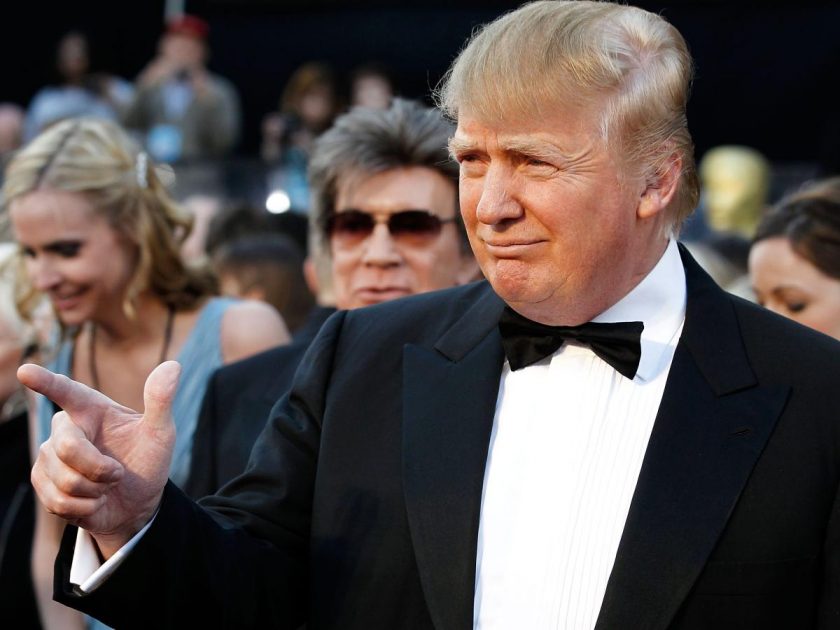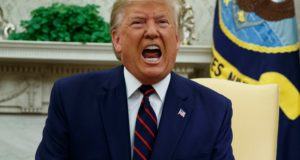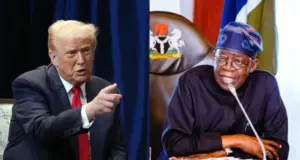I stood anxiously before a 4-man jury of my prepubescent peers. Mentally preparing to regurgitate a melody that would either seal my fate or catapult me into the upper echelon of middle school high society. I had spent all night studying the lyrics tucked carefully under my pillow, which my mother would later find. I was a sweaty kid who hadn’t yet discovered deodorant. Unfortunately, when you’re accused of being an African, smelling like underarms doesn’t help your case. Either way, I parted my lips and what felt like Mandarin escaped.
New York to the heart but got love for all”
Lie and die in the fire where I learned to ball
Uptown is the place where I lay my dome
On the streets of the Bronx where my family roam
Hoe damn it we home”
The jury watched intently, assessing my every word. Juror #2 mumbled along which worked wonders for my confidence.
Peter got a nine-millimeter
Playa haters can feel the flame from my heater
I never really liked to play a fool like that
But I love to succeed and see foes fall flat
Splat, like Déjà vu”
In my mind, this was the moment I proved to everyone that I wasn’t just some kid with a weird last name, a father who sounded a lot like Mufasa, and consistently smelly lunches. The year was 1998, the city, Pittsburgh, Pennsylvania and this popular hip hop song by 90’s rap duo, Peter Gunz and Lord Tariq, was about to be my ticket to salvation.
And I got another clip that’ll daze y’all crew
I sip Cristal, Dom P, Mo with pist-al
Just cause I’m pissy don’t mean you should miss out”
UH UH!!! WRONG!” Jenna belted out. It’s not miss out, it’s misdoubt. I told y’all she wasn’t black for real. Everybody know this song!”. Despite compelling rebuttals from jurors 1 and 4, the rules were the rules. It hadn’t hit me just yet, but life was about to get much tougher. It was one thing to be smart, another thing to be eclectic, but nothing had prepared me for being African. As we made our way out of the coat room where all middle school meetings took place, juror #4 spoke up one final time. You could’ve just let her in the group” he said, “you prolly don’t even know all the words yourself.” To which Jenna replied, It don’t matter! She not black, she African and once a African booty scratcher, always a African booty scratcher.” Jenna had no idea how right she was.
My father did his best to instill a sense of pride into his children. On a scale of 1-10, my father scored an impressive Nigerian on the “How Proud Are You to Be African” chart. “You are Nigerian”, my father would proclaim while my American mother looked on intuitively. “You are not from here, you are from Ogui Agu Eke, Enugu Nigeria!” I never interrupted my father’s rants, I needed the affirmation. And if not for the affirming words of my father, my relationship with being African would undoubtedly be shaped by people with views like Donald trump. People who view African countries as primitive and jungle-like, it’s inhabitants as hopeless beggars. The only difference being those people don’t look like Donald Trump where I come from, they look like me.
It wasn’t always blatant, the collective disdain for Africa I experienced within the black community, but it was always present. One day it might show up in the form of a lengthy line of personal questions about my father. Surely his complexion and eye redness were symptoms of tuberculosis, or at least my 6th grade teacher was convinced they were. She watched a special on the discovery channel about it. Another day it might resurface in my hair dressers complaints about the thickness and texture of my hair. It was obviously this course and kinky because of my West African father. On a good day, it was the fake accents, the celebration of my lighter complexion in comparison to my father’s, the warning not to go outside for fear of getting darker, the general inquiries about wild game hunting and devil worship, the regurgitated scenes from the popular Eddie Murphy film “Coming to America”. Some days were better than others, but every day was a constant reminder of what it meant to come from a shithole like Nigeria. The discontent expressed by Black Americans towards indigenous Africans is indicative of the self-hate, ignorance and fear left lingering after the physical chains of slavery were removed. Emancipation left no room for reconciliation or healing of the self or of the whole, not by happenstance but by design. History has long told a tale of a slave who was made better by enduring the torment of slavery, made more righteous, made more civilized. One who had essentially paid the price to escape the dark continent for a better life, leaving their long distant relatives in the dust. In many ways, slavery put the onus of the Black American experience on the fact that Africa was their starting point. Condemning the African for their part in the capture of their fellow Africans without discussing the context around which this was done. Developing a narrative around the kind and gentle slave master as a way of creating just enough empathy to humanize the oppressor. Even upon physical emancipation from slavery, the psychological remnants of slavery remain and continue to be present in the consciousness’ of its descendants. So much so that a Black person born in America, stripped of their language, culture and heritage, barely surviving in a country their labor was exploited to build can’t see the hypocrisy in uttering the words “At least I’m not African”. or “Go back to Africa”.
As I sat there in my 5th grade class contemplating survival techniques for the next 4 months, I was upset with my father. Upset at him for the accent and complexion that he couldn’t hide, upset for the last name he gave me that no one could pronounce, upset that I couldn’t tuck my African-ness away like my classmates had. The rift between Africans and Black Americans that I witnessed playing out in my household was far more civilized than the one I witnessed from the corner of my middle school classroom. The horror stories shared amongst the children of West African immigrants’ detail decades of merciless bullying, physical and psychological abuse, and overall ill-treatment at the hands of their African-American counterparts. Many of us escaping the torment only by gaining admission to private schools, where we quickly made the transition from punching bag to pet. A transition many of us gladly accepted. Our most formative years riddled with the pressures of maintaining the image of a perfect West African child, the expectation of academic and behavioral perfection, and the stress of surviving a 20-minute recess that often felt like a fight to the death in a Roman colosseum. I’d survive another 2 years at this school, spending as many days as possible in the nurse’s office complaining of cramps from a period I hadn’t yet started. Avoiding the coat room where fists flew undetected daily. Completing homework assignments and giving away school supplies and food in exchange for safety. The unfortunate part is that this story is not mine alone. Ask any West African you know who’s had the experience of sitting in an American classroom surrounded by the descendants of the one’s who were sold, and they’ll tell you that Donald Trump isn’t the only person who thinks Africa is full of shithole countries.
It is because of my mother that I know and understand the true dichotomy of being Black in a country like America. Growing up with a Black American mom afforded me the opportunity to understand the unique and complex challenges that come from having your culture stripped from you then being forced to create a pseudo-culture out of the scraps that remain. But most of the children of African immigrants aren’t like me, raised with the dual perspective of blackness on a domestic and global scale. Many still unable to completely let go of the psychological residue that comes from having to fight a war you didn’t know existed. Far too many dealing with the irony of watching the same people who mocked and cursed their differences, host festivals in celebration of those very same differences. Some still dealing with the ramifications of unknowingly coming from a shithole country. I watched tons of my Facebook friends condemn Donald Trump for a belief that they themselves weren’t too far removed from. I wondered if they recognized their own hypocrisy. Not only did they share his sentiment, but they were guilty of planting the seeds of self-loathing and inferiority in the future generations. I wondered if they recognized that the very issues they struggled to deal with as a community reflected a much more widespread anti-African mindset. Issues like colorism, texturism, and phenotypic discrimination.
Despite the recent uproar, I know that the modern world has never held Africa in high esteem and relations between Africans and Black Americans are as strained as they’ve always been. Each group pointing the collective finger at the other for their rank within American society. Africans trying to distance themselves from a people who have a reputation for chronic laziness, violence, and hostility. And Black Americans trying to distance themselves from people who are, well, Blacker than them. And somewhere between our self-hatred and our ignorance, we still find time to compete for our tiny piece of the residual American crumb. Neither group acknowledging the common denominator between their different yet similar circumstances. And for people like me, who were somehow blessed and cursed to be both Black American and African, this war plays out internally daily. I too roll my eyes whenever I see a Black American draped in a colorful stretch polyester cotton blend dashiki, ranting about the liberation of Black people while neatly tucked in front of the television for a riveting game of American football. I pity my Ghanaian coworker who undergoes a complete identity overhaul for the sake of capitulating, allowing white coworkers to rename him as they see fit, nervously giggling at jokes referencing the similarities between his upbringing and Simba’s. I empathize with them both for I am them on any given day. I too am guilty of making the transition to natural hair but continuously manipulating my tresses to avoid the appearance of an all-out Afro texture. To distance myself, even if just a little, from the burden of being African. We are all guilty.
The struggle of emerging consciousness coupled with the difficulty of acknowledging and tackling one’s own bias against oneself can often make self-discovery a road less traveled. The challenge of creating a personal narrative that defies the narrative society created for you is one that few people choose to accept. The truth is that the western world views us all with the same lens, despises our collective magic, and envies our ability to defy time. Less than 10% of the total trade in Africa takes place in Africa which means the powers that be would like you to hold on to a sentiment that they themselves know not to be true. The land and resource grab currently taking place in Africa, in these shithole countries, should paint a clear picture that it is the inhabitants in particular that hold little to no value. The western world has convinced an entire people that their birthright isn’t worth fighting for or reclaiming and that narrative plays out on a public stage day after day. Sooner or later, black skinned people across the globe will be forced to accept one universal truth. That the landmass known as Africa, comprised of its 54 shithole countries, estimated 2,000 languages, and over 3,000 distinct ethnic groups, is the axis our future and the center of our survival. Ringing true now more than ever, As Africa goes, so goes the rest of the world.
Arah Iloabugichukwu
 NaijaVibe NaijaVibe | Download Latest Nigerian Music & Mp3s
NaijaVibe NaijaVibe | Download Latest Nigerian Music & Mp3s




